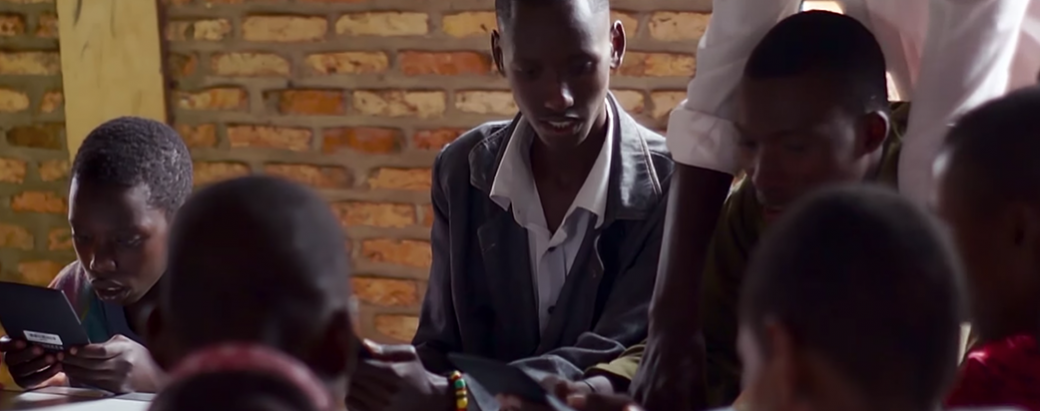
About the Project
This project is one of the 2016 WISE Awards winners.
This initiative is part of the 2014-15 WISE Accelerator Cohort.
Created in 2013 by Libraries without Borders as a humanitarian response device for access to information, education and culture, Ideas Box is a portable media center that unfolds on 100 square meters. It can accommodate 70 people at a time and 400 per day. The media center is fully furnished, weather proof and ergonomic, with its own energy source. It provides tools for: Learning (a range of educational content, available offline through a local server, books and e-readers); Playing (games, a cinema); Connecting (internet, 30 computers and tablets) and Creating (cameras, arts and craft, puppets, a stage and sound system). It is operated either directly by Libraries Without Borders or by partners, such as international NGOs, local organizations or public institutions like libraries and city authorities, with training and ongoing support from LWB.
Context and Issue
The MDGs and SDGs have established that education is the key lever of development. Yet too often students and their teachers lack the tools, the space and the environment to reach their potential. An overwhelming majority of children in vulnerable communities don’t attend schools or are thrown into overcrowded classrooms with no materials and teacher who have too little training and resources to build their courses on.
This is especially critical in emergency contexts. Refugees & IDP fleeing war and natural disasters face tremendous challenges in continuing their education. Yet it is essential that they are able to learn, grow, attend schools, as they will be the agents who rebuild their countries after the crisis.
For example, five years of conflict in Syria have had devastating consequences on the lives of millions of refugees and IDPs. Children & adolescents are particularly vulnerable: they face high risks of violence and trauma as they lose their social markers, of which school is one of the most important. For those who have fled to neighboring countries, they are welcomed into communities under high economic and social pressure, with already fragile public services and infrastructure. In Lebanon for example, Syrian refugees make up 25 percent of the population and makeshift solutions struggle to absorb the student population increase.
Solution and Impact
Libraries Without Borders started working on the design of libraries for emergency situations in Haiti, after the earthquake of January 2010. At the request of local partners, small libraries were created under tents in the IDP camps. Very quickly, these libraries became safe spaces in the camps, where children could find activities for learning and playing, community spaces where adults came to share information and find solutions. But these makeshift libraries could not be scaled to serve as a systematic humanitarian response toolkit. The Ideas Box was created as a response to this need, in a package that would meet the logistical standards of humanitarian contexts. It had to be robust, weatherproof and have its own energy source.
As such it is currently a unique device in the world of innovation for education: an integral concept with a rugged design that offers access to educational and creative resources in places where quality training and tools for education staff are rare or inexistent. It constitutes a safe learning environment for populations and provides education staff, students and families with ICT-based innovative pedagogical methods and tools, complementing formal and non-formal education. Content partners include Khan Academy and Coursera – It is a creative hub, engaging interactivity, individual or collective learning and user content production.
The first Ideas Boxes were implemented in Burundi in 2014. With more than 24,000 visits in only three months and more than 3,000 registered users, this pilot project met with great success. Since then, Ideas Box centers have been set up in refugee camps in Burundi, Jordan and Ethiopia. Since the launch, regular monitoring and three evaluations have been conducted. These have shown four transformational impacts of the Ideas Box on the academic levels of schoolchildren and on trainers’ teaching methods.
Future Developments
Ideas Box’s future plans include scaling up through three strategic axes: producing a greater number of boxes, developing a consortium of partners for high quality content and developing their user community. Ideas Box is also working towards a revenue business stream model. At the same time, major humanitarian NGOs and UN agencies are working with Ideas Box to make it a standard feature of humanitarian response.


